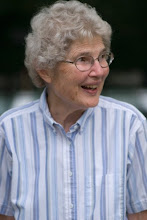So, I've told you that a Caucajewmexdian is someone who has trouble explaining where he or she is "from," someone whose grandparents came from different corners of the earth, with their accompanying traditions and cultures; I've told you that a Caucajewmexdian inhabits a more complicated history than he or she is likely to be taught while sitting around at school--but I have not told you why a Caucajewmexdian finds it necessary to write a blog about being a Caucajewmexdian.
It's a legitimate question. Why should such a thing as this be written? What are the impulses behind this?
----
When my grandparents illegally married, the idea of mixed-race or multi-cultural children was still shocking and problematic in America. (Yes, the same America that just elected such a child as its President.) The creation of such children was to be avoided whenever possible; those who did exist were to be pitied, spoken of in whispers, swept under a rug and brought out only as a warning. Oh, but now so many of us are here and we (if it makes any sense to use the first-person plural for such a diverse catch-all grouping) are so good-looking!
Shouldn't we speak up while America is listening? Shouldn't we take advantage of the moment to let the country know why it's nice to be us? After all, in the advanced writing class my fiancee taught last semester, a student wrote against interracial marriage for her persuasive piece--using the possibility of mixed-race children as her primary argument such unions (this at the same university, ironically, where both sets of my grandparents met). Don't I owe it to her, or at least to her classmates, to help show that the life I live is not one that ought to be prevented?
----
My sister pointed out today that most Americans, ourselves included, eat certain foods at Thanksgiving, and learn certain stories about why they do so, without taking too much time for reflection. We spend the day, perhaps, expressing our thankfulness for football (its referees excepted) and move on with our lives.
Choosing which traditions, absent in the broader, dominant culture to keep alive, though--that forces one to search for meaning. You have to know why you want to burn certain candles on a winter night, why you want to tell your children about Ram and Sita. And you have to feel, when you go to recover knowledge and resurrect traditions that your parents or grandparents had to leave behind, not being able to fit everything through the narrow window of time and attention they shared with you, that you are going to gain something from doing so, something that will make more than a cosmetic difference.
This blog is about wanting to know, like Jewish children for three thousand years, what makes one night different from all other nights.
----
Such things should be written by every granddaughter or grandson because Malachi said so on Elijah's behalf: "Behold, I will send you Elijah the prophet before the coming of the great and dreadful day of the Lord: and he shall turn the heart of the fathers to the children, and the heart of the children to their fathers, lest I come and smite the earth with a curse."
----
I'm writing this to gather my thoughts for the sake of my daughter-to-be.
After we've read a story, after we've prayed, after we've tucked her in and turned off the lights, I lean close to her and tell her one last story for the night. I used to tell her make-believe stories about herself, but then she started asking for stories about my mom and my dad when they were little kids, for stories about my sisters and brothers and me. And when I finish and try to leave she hangs on my kara and I have to promise her I'll come back another night with more, always more stories, and I worry that someday, I'll run out, I'll forget everything, that someday she'll get older and ask questions and her children will ask questions and (God willing) her grandchildren will ask questions and I'll want to remember then, I'll want to be able to tell them about the things my grandfather's grandfather used to say to him.
----
Because knowing that there's always more to everyone's story, that Rambam was right when he said every time you kill a person it's like killing a whole world, is maybe the only thing that will keep us from participating in another Holocaust. At least that's what Levinas said.
---
Because sometimes, such a story is a key, and the chest or door it corresponds to is still missing. All the more reason to gather the keys, and quickly!
Reading at Writ & Vision Thursday
-
I'm going to be doing a reading at Writ & Vision in downtown Provo at 7 pm
this Thursday.
I'm excited: I love to read my work, but I don't actually do so v...
6 years ago

Before reading your comment on the family stories, I thought of last night. Braeden, Rylan, and Kira were hungry for stories from our childhoods and from their Grandy's childhood (although she gave them a story about her son, their uncle). They thirst for the stories of their families. They want to remember their own stories to tell their children; I think that's why they ask so often. They long to know their family stories and their own stories. We all do.
ReplyDeleteThis post made me cry . . . kind of amazing.